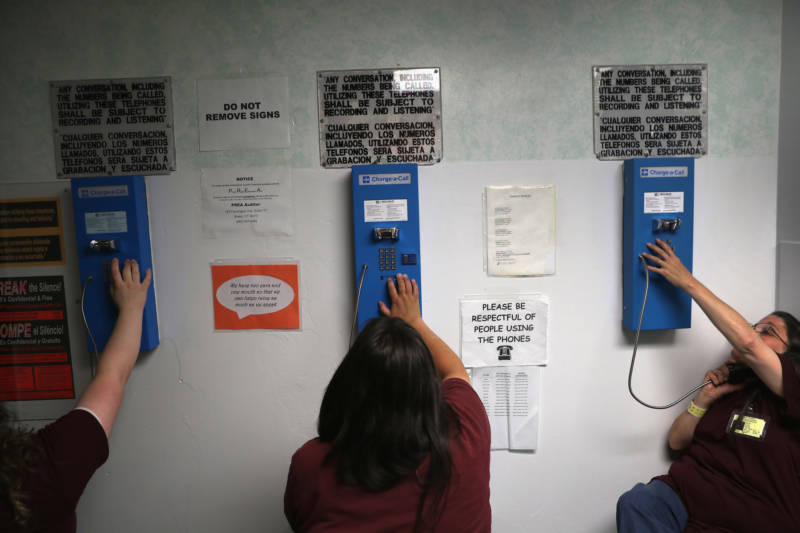San Francisco is going to become the first county in the country to stop charging jail inmates for phone calls and stop marking up the costs of items in the jail store.
Those costs can add up quickly: Last year inmates and their families spent about $1.7 million on the fees, even though San Francisco already has one of the lowest calling rates in the area.
The changes will go into effect over the next year. For now, the sheriff will provide free phone calls on holidays.
KQED listeners and readers had a lot of questions about Mayor London Breed and Sheriff Vicki Hennessy's proposal.
What were prices for things at the commissary? Phone calls?
The average cost of a 15-minute, in-state phone call from a San Francisco county jail cost $2.10, and a similar call would cost an average of $5.70 statewide, according to the Prison Policy Initiative.

